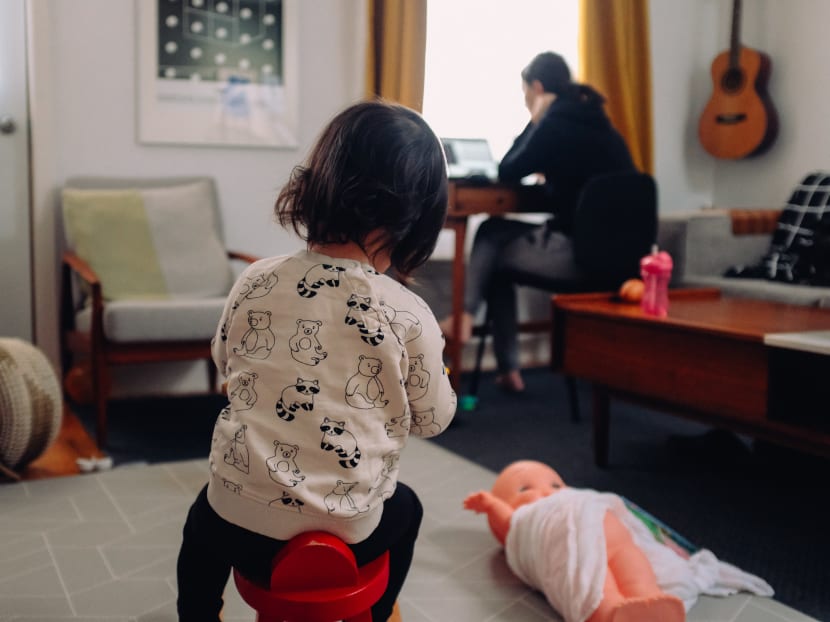Don’t let your children’s emotional health take a backseat during Covid-19
Parenting young children can be an overwhelming experience to many, what more during the ongoing Covid-19 crisis, with families confined to their homes for an extended period of time. What is often overlooked is the importance of children’s emotional health, which has implications for family wellbeing.
Parenting young children can be an overwhelming experience to many, what more during the ongoing Covid-19 crisis, with families confined to their homes for an extended period of time.
Playing multiple roles at home and living in a prolonged period of uncertainty, some families face additional stressors such as income loss, juggling work demands while attending to young children 24/7.
What is often overlooked is the importance of children’s emotional health, which has implications for family wellbeing. While we are concerned with the physical health and safety of our family during this pandemic, let us not forget about our children’s emotional wellbeing.
Young children can easily sense if their parents and caregivers are stressed and anxious.
Anxiety can become contagious in a household and the problem with young children is that they may feed off their parent’s stress and anxiety without knowing or understanding what the adults are worried about.
Due to their developing knowledge and life experiences, they may even think that the situation is worse than it actually is, compounding their own anxiety.
Parents are first responders to their children’s care and wellbeing. Hence, it is essential that parents provide a calm environment for their children in the midst of the pandemic.
When we hear ourselves shouting instructions to our children such as “don’t touch that, wash your hands with soap, don’t hold hands or you will get the coronavirus!” repeatedly, we may not realise we are adding to the children’s anxiety.
Chronic stress in children has been linked to delayed brain and child development, problem behaviours and low immunity in the body system.
Babies as young as one have been found to suffer from depression too.
They learn by watching their significant adults and absorbing everything that goes on around them including emotional cues. Therefore, they need a safe and secure environment to thrive.
At the same time, as parents make efforts to remain calm during this period, it is also not healthy for them to suppress negative feelings.
Studies have shown that parents who suppress their stress and anxiety feelings around their children may add to their children’s stress levels.
Instead, it would help for parents to acknowledge that they are stressed and discuss with children ways to stay calm and feel better for both parents and children.
Take this opportunity to be living examples of emotional resilience for our children. Simple actions like taking slow breaths and exercising with our children are activities we can undertake even indoors.
Providing a daily structure and routine for children provides consistency and predictability, encouraging children to develop self-regulation and control, giving them a sense of safety and familiarity.
Being with children 24/7 offers parents the advantage to be in the moment, to listen to them, talk with them and respond to their emotions, thus paving the way for relationship building.
It is natural for young children to develop fears amidst the current crisis. It has disrupted their lives and brought about new experiences. Seeing people with masks, and diminished interactions with close friends, neighbours and relatives, can be a daunting experience to many.
While young children are generally quick to adapt to changes, some need more time.
Misbehaving is one of their ways to communicate that something is not going right with them.
Listening to their anxieties and fears therefore becomes critical to safeguarding their emotional health. It does not require a specific time set, and is not an uphill task. This can happen organically amidst your ordinary routines at home.
For example, when your children approach you to tell you about what they have watched on the news or heard over the phone, get down to their eye level and listen both actively and respectfully to what they have to say.
This simple act allows you not only to acknowledge the validity of their thoughts and feelings, it also demonstrates that you are available when they need you, and that you truly care about things that matter to them.
In addition, you can also invite your children to help with household chores such as preparing meals and doing the laundry.
Besides equipping them with life skills, participating in household chores with family members offers numerous opportunities for both parents and children to engage in deeper conversations about things they hear and see around them.
We are in the midst of a pandemic, and do not know what the future holds for us and our children.
Covid-19 is undoubtedly contributing to anxiety and stress in family life. However, let us bear in mind that it has also given us an opportunity to spend quality time with loved ones, reconnect and strengthen bonds.
Our efforts in building the foundation for a secure relationship will bear positive fruits for our children’s wellbeing beyond these troubled times.
The benefits of enjoying physical and emotional health come with giving priority to taking care of the emotional needs of our children. We should not let this take a backseat.
ABOUT THE AUTHORS:
Dr Cynthia Lim and Dr G Kaveri are both faculty members in the department of Early Childhood Education at the S R Nathan School of Human Development, Singapore University of Social Sciences.







